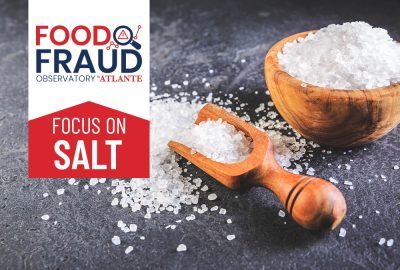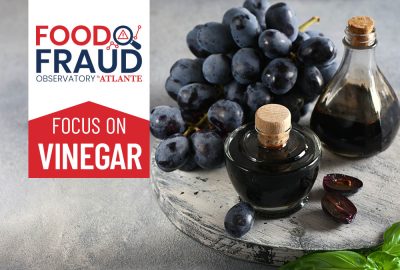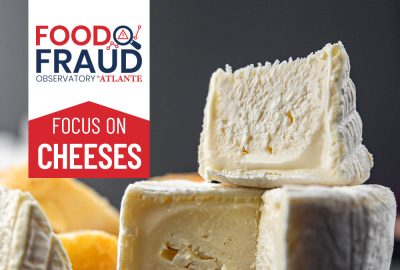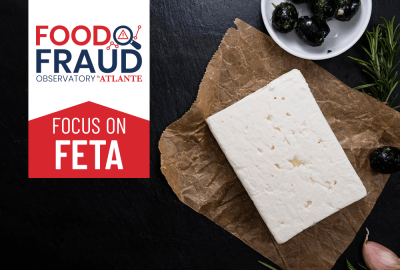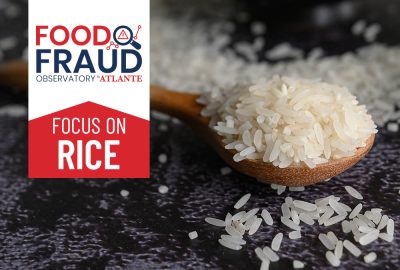Atlante
News
Atlante Food Fraud Observatory: Spices Focus
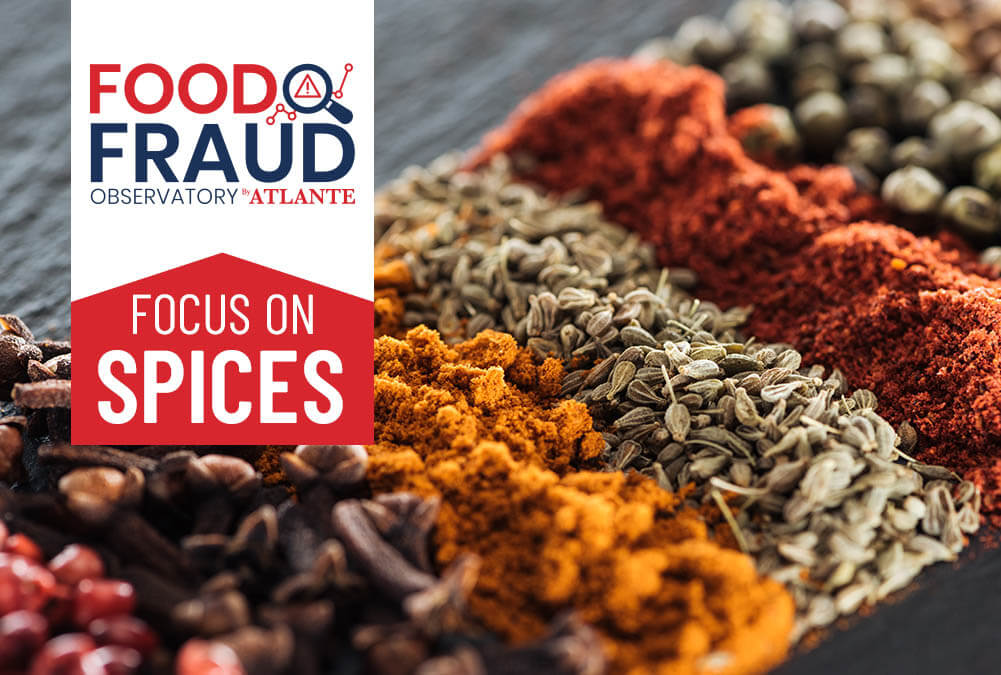
8 November 2024
The Atlante Food Fraud Observatory focuses on risks associated with products and categories. The goal? To raise awareness and ensure that businesses can work with greater responsibility.
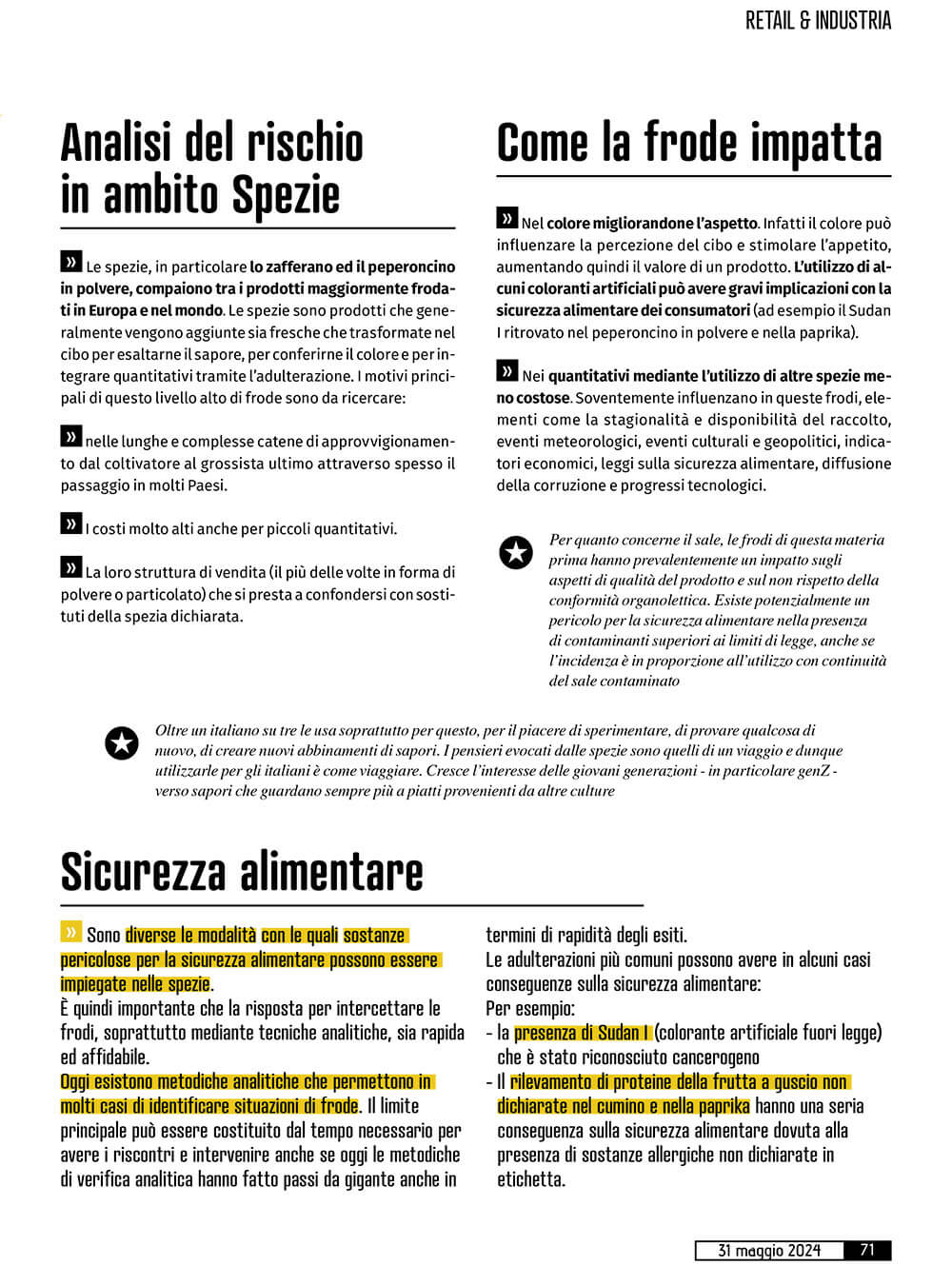 Spices are products that are generally added either fresh or processed into food to enhance flavour, add colour, and supplement quantities through adulteration. Particularly, saffron and chili powder are among the most fraudulent products in Europe and around the world.
Spices are products that are generally added either fresh or processed into food to enhance flavour, add colour, and supplement quantities through adulteration. Particularly, saffron and chili powder are among the most fraudulent products in Europe and around the world.
The main reasons for this high level of fraud can be attributed to several factors:
- The long and complex supply chains from the grower to the end wholesaler, often passing through many countries
- Very high costs, even for small quantities
- They are often sold in powder or particulate form, which can easily be confused with spice substitutes.
Fraud can occur in various ways, such as:
- Altering colour to improve appearance, as colour can influence the perception of food and stimulate appetite, thus increasing the value of a product. The use of certain artificial dyes can pose serious implications for consumer food safety (e.g., Sudan I, found in chili powder and paprika)
- Manipulating quantities by using other, less expensive spices. Elements influencing these frauds often include seasonality and harvest availability, weather events, cultural and geopolitical events, economic indicators, food safety laws, the spread of corruption, and technological advances.
These aspects can, in some cases, have consequences for food safety. For example:
- The presence of Sudan I, an illegal artificial dye categorised as carcinogenic
- The presence of undeclared nut proteins in cumin and paprika, posing serious food safety consequences due to the presence of undisclosed allergens.
Hazardous substances can be used in spices in several ways. Therefore, it is crucial that the response to intercept fraud, especially through analytical techniques, is quick and reliable.
Today, there are analytical methods capable of identifying fraud in many cases. The main limitation may be the time it takes to obtain findings and intervene, although analytical verification methods have also made significant strides in terms of result speed.
Impegno e Collaborazione: L’iniziativa di Atlante per Combattere le Frodi Alimentari
Atlante ha da sempre una particolare attenzione per i rischi legati alla frode alimentare. Già lo scorso luglio 2023, Atlante ha avviato il progetto di Food Fraud Risk Assessment: un solido piano dedicato alla valutazione dei rischi connessi alla frode alimentare.
All’interno di questo importante piano si inserisce la collaborazione con GDO Week per una rubrica mensile dedicata all’antifrode alimentare. Gli articoli usciranno a cura dell’Osservatorio Food Fraud di Atlante con la firma di Enrico Santi, Quality Assurance Manager.
Ogni articolo offrirà approfondimenti, analisi e best practices per affrontare la complessità delle frodi alimentari.
Questa sinergia evidenzia il costante impegno di Atlante nel mettere a disposizione delle principali catene italiane e dei suoi partner le sue conoscenze e le sue strategie più efficaci per garantire la genuinità e l’integrità degli alimenti che finiscono sulle nostre tavole.

